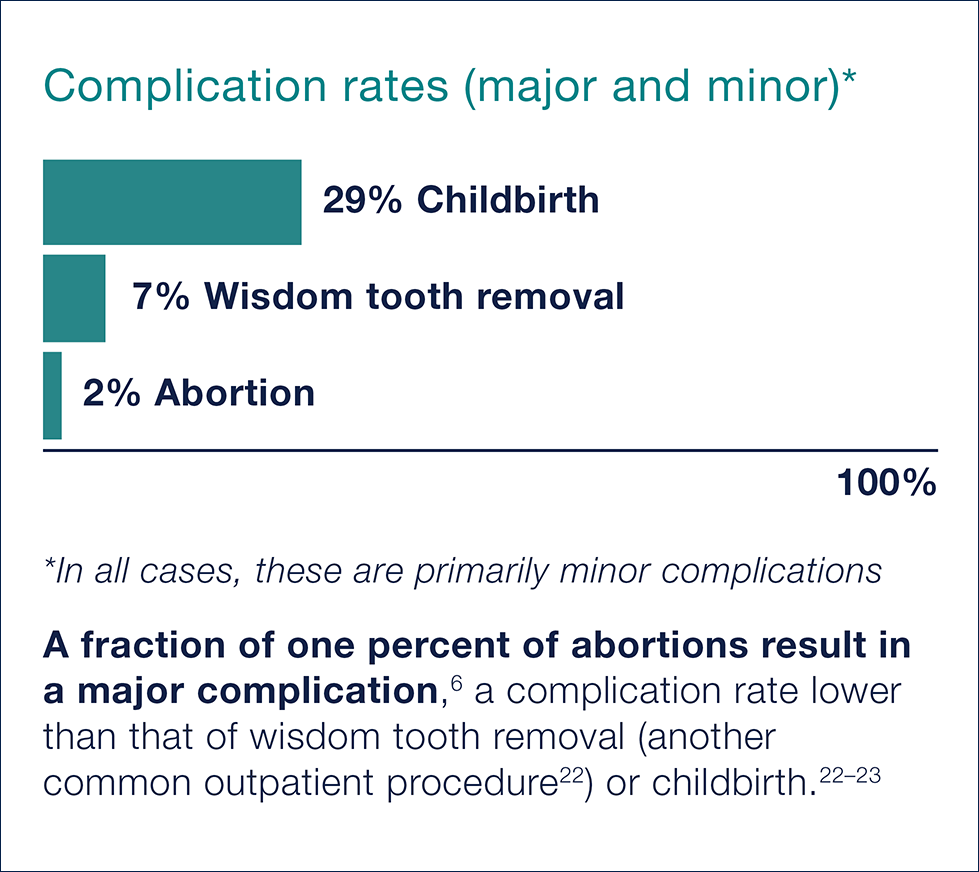Prevalence and Characteristics
- About one in four women in the U.S. will have an abortion at some point in her life.1
- The majority (89%) of abortions occur in the first trimester of pregnancy.2
- Most people seeking abortion are poor or low-income (75%), are women of color (61%), are in their 20s (72%), report a religious affiliation (62%), and have at least one child (59%).3, 4
Safety
- Over four decades of research indicate that abortion is a very safe outpatient procedure.4, 5
- Abortion is far safer than childbirth, with mortality fourteen times lower than carrying to term.5
- The overall abortion complication rate is lower than that of wisdom tooth removal.6 A fraction of one percent of abortions result in a major complication, defined as a complication requiring blood transfusion, surgery, or hospital admission.4, 7
- Having an abortion is not associated with long-term health concerns;4 instead, being denied a wanted abortion may lead to poor health outcomes.8–10
Methods
- The most common method of abortion is aspiration, a minimally invasive, 10-minute procedure that is also used for miscarriage management.4
- Another common method of abortion is medication abortion, an FDA-approved regimen of mifepristone and misoprostol pills, which is 95–98% effective and approved for use up to 10 weeks of pregnancy.11, 12 Medication abortion comprises about one third of all non-hospital abortions in the US.1
Long-Term Effects
- Having an abortion is not associated with any significant negative physical, emotional, or mental health effects.8, 13-15
- Being able to obtain a wanted abortion is associated with positive outcomes, including increasing self-esteem and life satisfaction and the ability to achieve aspirational life plans.16, 17
- Being denied a wanted abortion is associated with negative outcomes, including:
- Reduced financial security for women and their children9
- Increased likelihood of staying tethered to violent partners10
- Poorer bonding with children born as the result of abortion denial18
- Serious health problems related to carrying an unwanted pregnancy to term19
- Worse physical health five years later, compared to those who were able to obtain a wanted abortion8
Evidence-Based Bottom Line
Abortion is a common, safe, and simple outpatient procedure. Obtaining an abortion does not lead to any physical or mental health problems, and confers benefits over being denied a wanted abortion.
For more information:

References